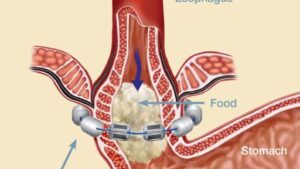Returning home after serving in the military can be both a relief and a challenge for many veterans. The transition is often difficult, as veterans face unique physical and psychological issues ranging from chronic pain and injuries to mental health struggles such as post-traumatic stress disorder (PTSD). Recognizing these needs, veteran rehab facilities have evolved to provide specialized care tailored to help these heroes reclaim their lives, regain independence, and reintegrate into society with dignity and support.
In this article, we’ll explore how veteran rehab facilities operate, the importance of therapies like EMDR for veterans, and why these centers play a critical role in healing and recovery.
Understanding Veteran Rehab Facilities
Veteran rehab facilities are specialized treatment centers focused on addressing the complex health challenges faced by military veterans. Through a comprehensive approach combining physical therapy, psychological support, and medical treatment, these centers aim to provide holistic care.
Specialized Care Tailored to Veterans
Veterans often present with a range of physical injuries—such as mobility impairments, nerve damage, or traumatic brain injuries—that require targeted physical rehabilitation. Additionally, many experience mental health issues, including PTSD, depression, anxiety, and substance abuse.
Veteran rehab facilities are equipped with healthcare professionals trained specifically in these areas, offering treatments that acknowledge the unique military context of their patients.
Multidisciplinary Teams
These rehab centers bring together diverse professionals: physical therapists, occupational therapists, psychologists, psychiatrists, and social workers, among others. This multidisciplinary teamwork ensures that all aspects of a veteran’s recovery—from physical rehab to emotional support—are integrated into a personalized care plan.
EMDR for Veterans: A Powerful Therapeutic Approach
Among the mental health treatments offered at veteran rehab facilities, Eye Movement Desensitization and Reprocessing (EMDR) has gained recognition for its effectiveness, particularly in treating PTSD.
What is EMDR?
EMDR is an evidence-based psychotherapy designed to help individuals process and heal from traumatic memories. Through guided eye movements or other bilateral stimulation techniques, EMDR helps rewire the brain’s response to trauma, reducing emotional distress and negative symptoms.
Why EMDR is Effective for Veterans
Military service can expose individuals to stressful and life-altering veteran rehab facilities not easily addressed by standard therapies. EMDR provides a structured yet gentle method to confront these memories without overwhelming the patient, making it particularly suitable for veterans.
Patients often report significant improvements in anxiety, mood, and overall mental health after EMDR, contributing to better recovery outcomes.
Comprehensive Rehabilitation Services
Veteran rehab facilities typically offer a wide array of services beyond EMDR and physical therapy:
-
Pain Management: Techniques such as medication management, alternative therapies, and physical modalities address chronic pain common among veterans.
-
Occupational Therapy: Focuses on restoring daily living skills and vocational training to enhance independence.
-
Counseling and Support Groups: Offer emotional support and foster community among veterans facing similar challenges.
-
Substance Abuse Treatment: Addresses co-occurring addiction issues that may hinder recovery.
-
Reintegration Support: Helps veterans navigate benefits, education, employment, and housing transition.
Impact of Veteran Rehab Facilities
Restoring Physical Function
Many veterans return with injuries that limit mobility and function. Comprehensive rehabilitation helps restore strength, balance, and coordination, enabling patients to regain independence and improve quality of life.
Addressing Mental Health
Treatments such as EMDR, cognitive behavioral therapy, and counseling reduce PTSD symptoms, anxiety, and depression. These improvements facilitate better relationships, employment prospects, and overall well-being.
Community and Connection
Veteran rehab centers often cultivate supportive environments where patients can connect, share experiences, and reduce feelings of isolation. This social support is a powerful factor in sustained recovery.
What People Also Ask
What are veteran rehab facilities?
Veteran rehab facilities are specialized centers providing medical, physical, and psychological rehabilitation tailored to the unique needs of military veterans.
How does EMDR help veterans with PTSD?
EMDR helps veterans process traumatic memories by reducing distress associated with them, often leading to decreased PTSD symptoms and improved mental health.
Are veteran rehab facilities covered by VA benefits?
Many veteran rehab services are available through the Department of Veterans Affairs (VA), though eligibility and coverage vary.
What should I expect during rehabilitation?
Patients can expect personalized treatment plans involving physical therapy, mental health counseling, and support services aimed at holistic recovery.
How long does rehabilitation typically last?
Rehabilitation duration depends on the individual’s condition, goals, and treatment progress; it might range from weeks to several months.
Conclusion
Veteran rehab facilities are essential in veteran rehab facilities those who have served regain control over their health and lives. By providing specialized, compassionate, and comprehensive care—including innovative therapies like EMDR for veterans—these centers address the full spectrum of physical and psychological challenges faced by military personnel.
For veterans and their families, these facilities not only offer healing but also hope, community, and a pathway to a fuller, healthier life. As awareness and resources continue to grow, the future looks brighter for those dedicated to serving our country and facing the challenges of life after service.






